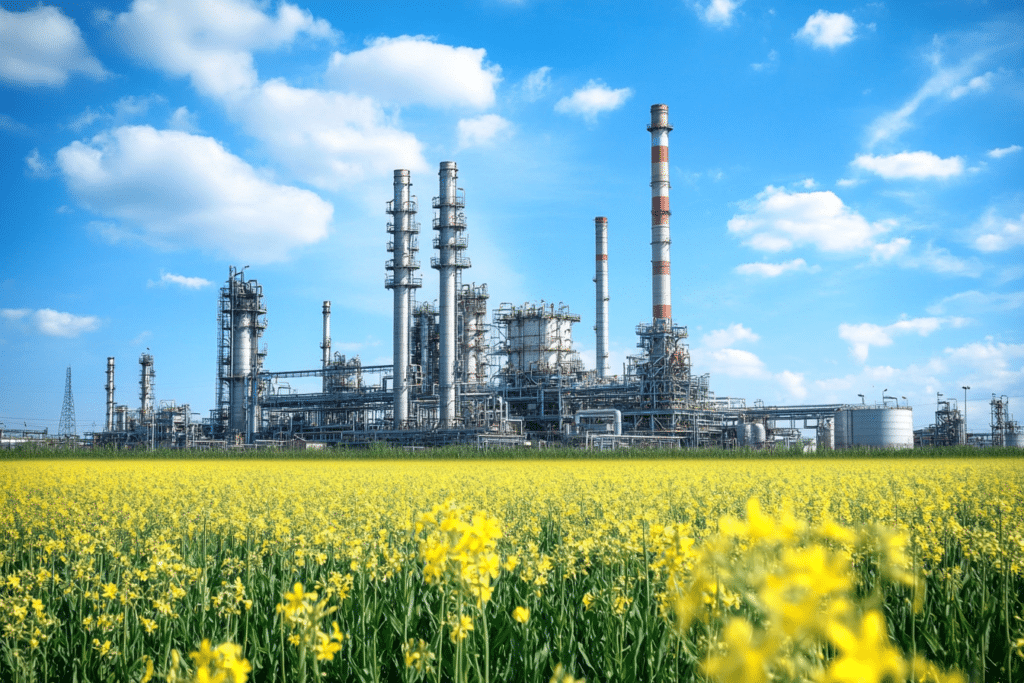Since the ban on traditional oil boilers in 2022, biofuel has emerged as a credible alternative. Grant, a leader in renewable energy heating solutions, analyzes the challenges and prospects of this biocompatible fuel that is often misunderstood.

A biocompatible fuel in line with the energy transition
Biofuel is a mixture of domestic oil and methyl ester from rapeseed (EMC), a renewable energy. F30 biofuel, composed of 30% rapeseed, helps reduce CO2 emissions below the regulatory threshold of 300 g CO2eq/kWh PCI. This development follows a trajectory towards a 100% renewable biocompatible fuel by 2040. The first step aims to reach 55% rapeseed by 2027.
Rapeseed has been favored for its availability in France and its low impact on food crops. France produces an average of 5 million tons of rapeseed per year, of which 1.8 million are intended for the manufacture of EMC. This underutilized resource could thus be mobilized further for the energy transition.

A solution adapted to existing infrastructures
Contrary to popular belief, biofuel can be used in existing boilers. This requires a few adjustments, such as changing the burner. Moreover, new generation boilers, like the Grant Vortex Utility, are directly compatible with this fuel. This compatibility facilitates the energy transition without requiring heavy investments in thermal renovation.
Consumers also appreciate biofuel for its simplicity of use. It retains the same properties as traditional oil, with good cold resistance and optimal storage stability. Compared to other heating solutions like heat pumps, it does not require significant modifications to the heating network.

A booming market despite the lack of public support
With sales growing by +650% in one year, biofuel is generating increasing interest. Yet, it receives no public aid and is taxed the same as fossil oil. “Liquid fuel is overlooked in energy planning, despite its potential for decarbonization,” laments Frédéric Plan, general delegate of the FF3C. Nevertheless, consumers seem ready to make the change: 57% of oil users are considering adopting a boiler compatible with biofuel F100, according to a study by Audirep conducted in 2024.

The development of the biofuel distribution network accompanies this dynamic. In October 2024, 360 establishments sold biofuel in France, compared to 200 a year earlier. The goal is to guarantee a distribution point within 50 km of each user. With an expanding supply and a sale price close to traditional oil (around €1.38/L for F30 compared to €1.28/L for standard oil), the competitiveness of biofuel is gradually asserting itself.
Article based on a press release received by the editorial team.
Articles similaires
Thank you!
We will contact you soon.














